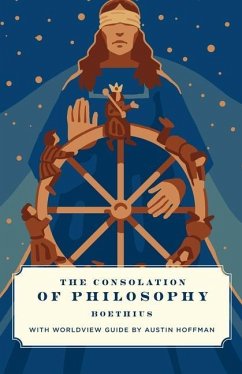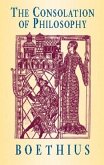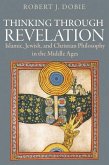"Until about two hundred years ago it would, I think, have been hard to find an educated man in any European country who did not love it. To acquire a taste for The Consolation of Philosophy ] is almost to become naturalised in the Middle Ages." C.S. Lewis "Is it better to try your hardest and succeed or try your hardest and fail? Imagine two college students: one receives only 'As, ' the other only 'Fs.' On the surface, it appears that good fortune is clearly more conducive to happiness than bad. But what happens when things go wrong? Which of these two students is more likely to respond better when his car is suddenly totaled? Who is more grateful for an unexpected gift? Who is more prepared to weather the ups and downs of a storm-filled life? Who would be more likely to receive the gospel? When we change the lens with which we observe these two figures, they start to appear in a different light. Fortune doesn't last. We cannot count on good blessings all the time. Only by experiencing adversity are we trained in gratitude and thankfulness." From Austin Hoffman's Introduction Imprisoned on false charges of conspiracy, the Roman philosopher and statesman Boethius penned this work in which he is comforted in his misfortune by Lady Philosophy. This book stands at the turning of the ages: Boethius took the best of pagan philosophy and made it the foundation of medieval philosophy and culture. It is a profound discussion of such issues as fortune and suffering, free will and predestination, and how doing good is its own reward.







